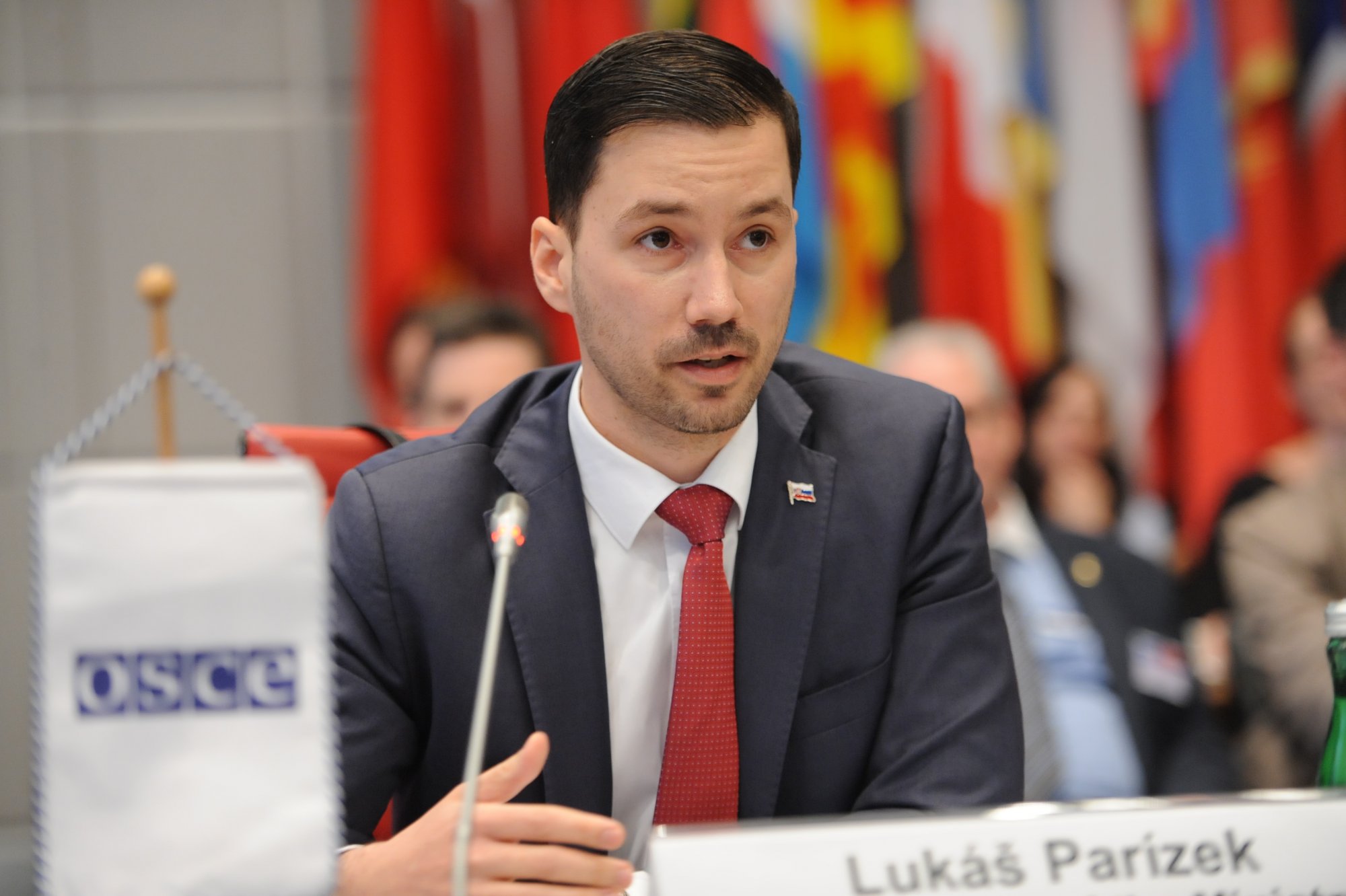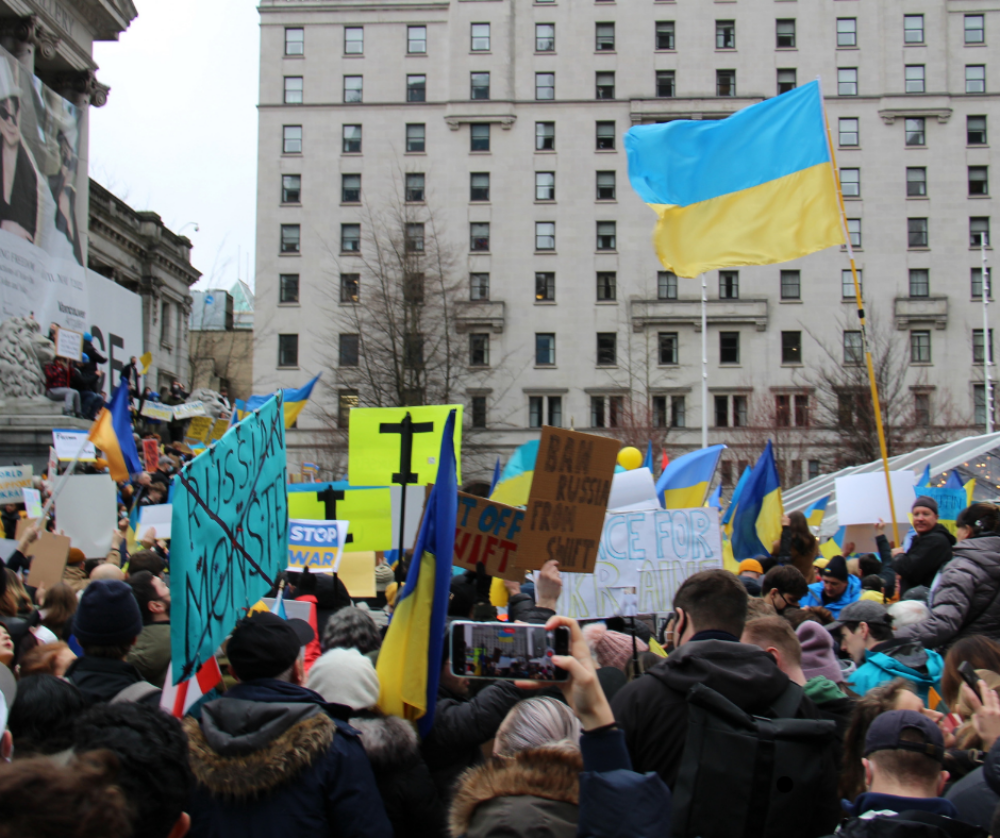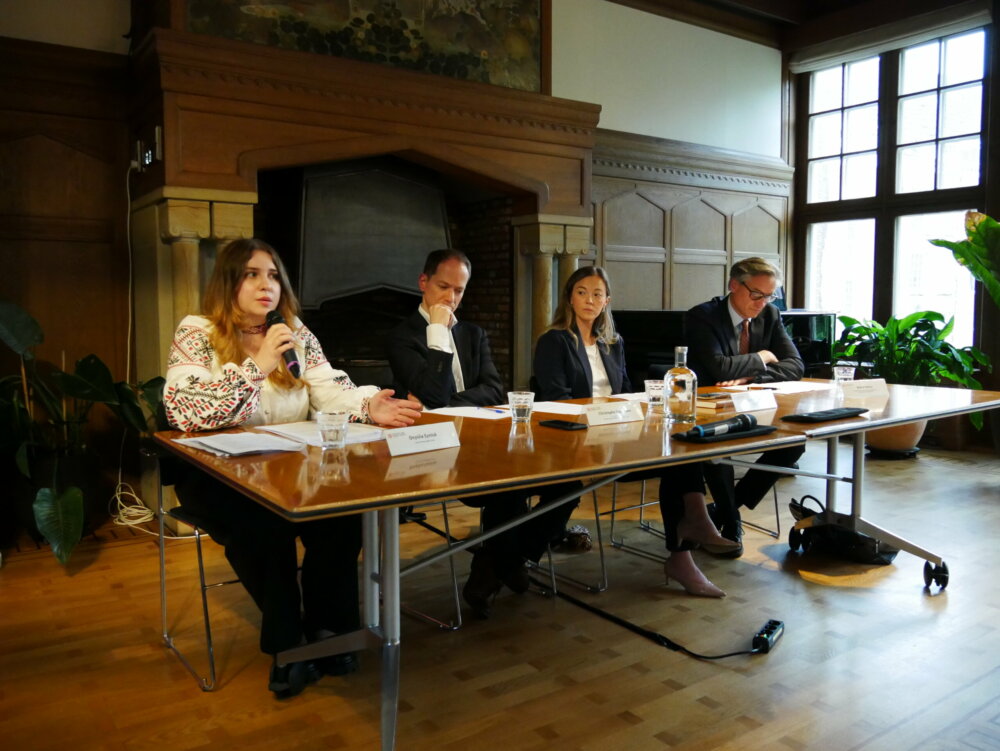OSCE/Micky Kroell

“We managed to find a solution just in time”
The adoption of the OSCE annual budget was delayed again this year. OSCE participating States find it increasingly difficult to agree on the adoption of the budget on time despite the fact that the size of the budget is modest and has remained unchanged for many years.
This year, France made the adoption of the budget for 2019 dependent on a prior agreement on new Scales of Contribution. The Scales of Contribution define how much each of the 57 OSCE participating States annually pay for the OSCE. The Scales have remained unchanged since 2005 and have since been prolonged regularly. In the eyes of France and a number of other OSCE participating States, they are unfair and do not correspond to current economic realities.
As France stated at the Special Permanent Council meeting on 10 January: “The scales that expired on 31 December 2017 are unfounded and unfair. The financing of the OSCE currently rests on the shoulders of a few contributors, including the European Union, the United States of America, Canada, Norway and Switzerland, which finance 95 per cent of its budget. Meanwhile, others capable of paying shirk their financial responsibilities by delaying an inevitable change. It is vital to place the financing of this Organization as rapidly as possible on a healthy basis, that is to say on a basis that is fair for all.”
Against this background, the Slovak OSCE Chairmanship created a special working group to address the issue. Slovak State Secretary and Special Representative of the Minister for the Slovak OSCE Chairmanship Lukáš Parízek explains in this interview how the Chairmanship helped to break the impasse and achieve a tentative solution on the Scales of Contribution for 2019.
The OSCE is a consensus-based organisation. This means that every decision has to be agreed by 57 states unanimously. This can be very tricky, particularly when it comes to budget negotiations. This year, just like on several occasions in previous years, the adoption of the OSCE annual budget was delayed for almost 4 months. Can you explain why?
Lukáš Parízek: In the OSCE, even a very technical question such as the adoption of the annual budget can turn into a political discussion. This happens despite the fact that we are not talking about large sums of money.
The situation this year was not very different from previous years. The only difference was that we had to address the unresolved issue of the so-called Scales of Contribution. The Scales of Contribution define how much each of the 57 OSCE participating States annually pay for the OSCE. Hence, they are a mechanism on which the OSCE annual budget is built.
The last time that OSCE states agreed on this mechanism was in 2005. Ever since, the Scales of 2005 have been prolonged approximately every two to three years – until December 2017. From that point onwards, there was no further prolongation and therefore the issue had to be addressed by our Chairmanship. We did so successfully and we have now fixed it for this year.
So, this is not a long-term solution?
Parízek: Correct. Therefore, our overall ambition is to bring about a long-term, sustainable solution which the OSCE can rely on. Running on provisional Scales and risking a delay of the adoption of the annual budget every year is detrimental to the work of the OSCE. We have to remember that there are enough conflicts in the OSCE area that need to be addressed urgently.
How will the long-term solution look like?
Parízek: That depends on the participating States. If successful, the decision on the new Scales of Contribution should not be limited in time but really be for the long-term, maybe with the possibility of renewal every couple of years.
The OSCE Unified Budget has been the same for many years. It totals approximately EUR 138,000,000. This is, in fact, very little money as you just stated, especially when compared to what many states spend, for example, on defence. Why do you think states argue so much in the OSCE about comparatively small amounts of money?
Parízek: Actually, you are right. The overall yearly core budget of the OSCE is not that big. It is approximately the same as the budget of the Slovak Foreign Ministry. But the OSCE is the largest regional security organization encompassing 57 states!
In my opinion negotiations are difficult because the OSCE is a consensus-based organization and you need to take into account the positons of states with very different interests.
There are a number of states who pay a lot for the OSCE, and others who pay very little. In fact, 17 countries pay 99% of the OSCE budget and 40 countries pay 1%, among them Slovakia. Those that pay the lion share are naturally upset and want to change the situation. This is a delicate matter and requires a sensitive approach.
How did you break the impasse?
Parízek: At the beginning of the year, I started to chair an informal working group that was specifically created for the purpose of finding a solution on the Scales of Contribution. We thus made sure to give the issue the political support of the Chairmanship.
We were supported in our approach by a number of states. Those who did not support us had to be addressed individually. I therefore travelled extensively to various OSCE capitals and spoke to decision-makers in Ministries on a bilateral basis.
I presented our proposal, and, leading by example, showed them that Slovakia would be willing to pay more. I also explained that the new formula would be based on objective and fair economic criteria.
The highlight was a high-level meeting in Bratislava at the beginning of April with delegates attending from OSCE capitals. This is where we took decisive steps to break the impasse.
Do you think that the Scales for 2019 are in fact fairer than the previous ones?
Parízek: That is hard to say, because they have actually not changed that much. The difference is minimal but I would argue that the Scales for this year are a step in the right direction. We were able to build on the previous Scales but include small changes that reflect new economic realities. We now want to build on the momentum and implement a long-term reform.
Can this still be achieved this year?
Parízek: That is difficult to answer. We as the Slovak OSCE Chairmanship definitely want to address the issue now and also make use of the fact that we still have the same people taking decisions.
Most of the OSCE negotiations are taking place behind closed doors. In this case, the issue is out in the public domain. Is this helpful, or not?
Parízek: I would say hiding it somewhere in the negotiation rooms in Hofburg is not good. The agenda would not benefit from it.
Many people ask whether the delay in the adoption of the OSCE annual budget has a negative impact on the work of the OSCE. Slovak Foreign Minister Miroslav Lajcak made reference to this at the beginning of the year when he addressed the OSCE Permanet Council in his new capacity as OSCE Chairperson-in-Office, when he said that “we have heard that the capacity of ODIHR to prepare for two important election monitoring missions will be affected”. Has the work of the OSCE been affected?
Parízek: If the situation had continued for much longer, then I think there would definitely have been negative consequences for the work of the OSCE. But I think we managed to find a solution just in time.
But it is true that the delay in the adoption of the budget prevents the OSCE from focusing on long-term projects that need a long-term investment. These projects had to run on a provisional basis which is not good, even if it works for some time.
Most importantly, lengthy negotiations on the budget and on the Scales are energy and time consuming. It prevents us from focssing on other urgent security matters. The OSCE needs to give priority focus on conflict prevention and resolution rather than spend most of its time addressing the OSCE budget and Scales of Contribution.
The interview was conducted by Stephanie Liechtenstein at the Slovak Foreign Ministry in Bratislava on 16 April.



Comments
* Your email address will not be published